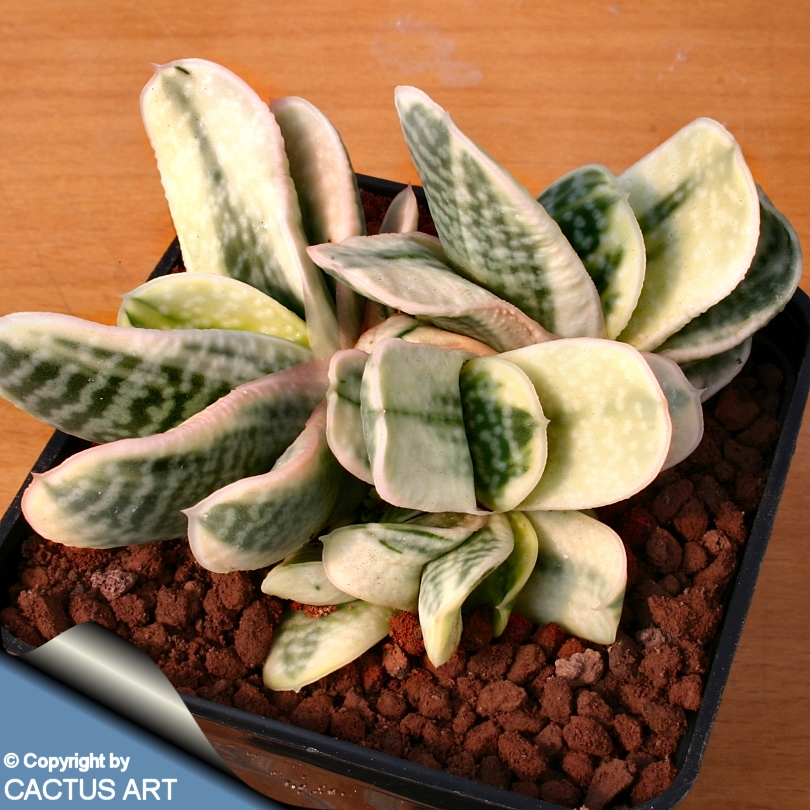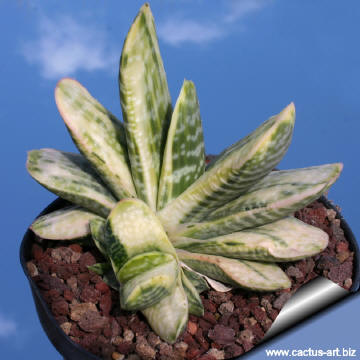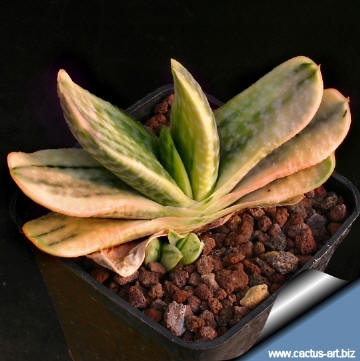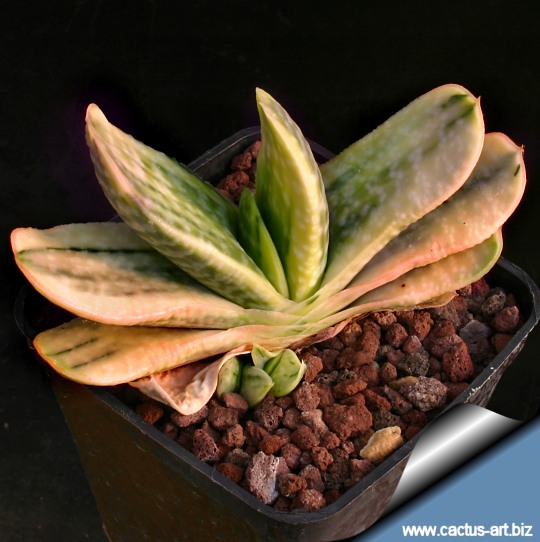|
|
|

Gasteria cv. FUJI YUKI (G. obtusa f. variegata)
Clustering cultivar with short stubby leaves, blue-grey with
yellowish-white strips.
|
 |
 |
|
Cultivation: They
are of easy culture which makes them a good houseplant and can be an
excellent subject for the beginning gasteriaphile (it can grow easily on
window sills, verandas and in miniature succulent gardens where they are
happy to share their habitat with other smaller succulent plants, or in
outdoor rockeries) Need light shade to shade, but will take full sun
part of the day. (with some sun exposure the leaf develops a nice
reddish tint and remain compact) They are tolerant of a wide range of
soils and habitats, but prefer a very porous potting mix to increase
drainage. During the hot summer months, the soil should be kept moist
but not overly wet. The plants are fertilized only once during the
growing season with a balanced fertilizer diluted to ½ the recommended
strength. During the winter months, water only when the soil becomes
completely dry.
|
|
Advertising
|
|
|
|
|
Family: Asphodelaceae
Gasteria cv. FUJI YUKI
Scientific name: Gasteria obtusa forma variegata
Origin:
Japan (Nursery
produced cultivar)
Etymology: The Japanese name "Fuji Yuki" means "Snow
of Mount Fuji".
|
|
Description: The cultivar FUJI YUKI is a medium size plant (
clearly affine to G. bicolor) and one of the most decorative
variegated gasteria hybrid. The variegation on it is very beautiful.
Stems: Stem very short (almost stemless) that may become
elongated to 10 cm with age.
Rosettes: 7-15(-25) cm in diameter with basal leaves.
Leaves: Fleshy, fat, pillowy tongue like, Smooth, shiny green
speckled wide with white dots and variably striped with silver, cream or
yellow. 5-12 cm long and 2 to 3,5 cm. wide. Distichous or sligtly
spirally rosulate.. Leaves may turn red if plant is
stressed.
Flowers: Small up to 2 cm, pendulous, tubular,
bicoloured reddish-pink and green that look like little stomachs.
The inflorescence can be branched and tall.
Blooming Time: Flowers can be produced any
time of year, peaking in midwinter to spring.
NOTE:
One problem with Gasteria is that there are so many
hybrids between species, hybrids with Aloes and
Haworthia, seedling variability, and differences between
juvenile and adult plants, that it becomes almost impossible to
distinguish many forms from one another. Particularly the name obtusa is
used for wildly different forms and can ingenerate confusion.
|
|
|
|

Propagation:
Gasteria is easily propagated by the removal of offshoots or by leaf
cuttings in spring or summer. To propagate by leaf cuttings, remove a
leaf and let it lie for about one month, giving the wound time to heal.
Then lay the leaf on its side with the basal part buried in the soil.
This leaf should root within a month or two, and small plants will form
at the leaf base. They can also grown from seed.

 |
|